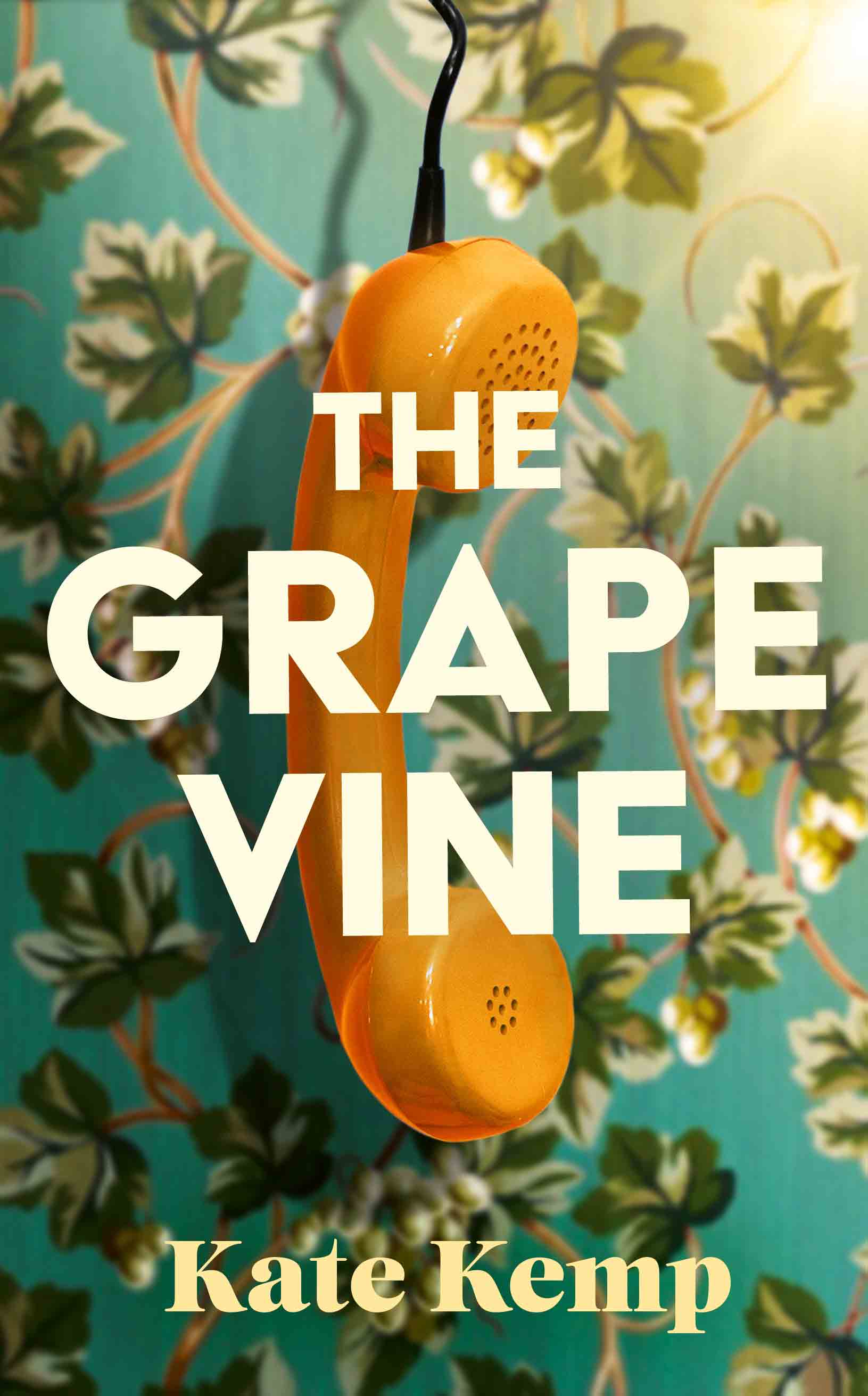You are viewing your 1 free article this month. Login to read more articles.
Debuts of 2025, Volume 1: Kate Kemp
In Kate Kemp’s debut novel, The Grapevine, 12-year-old Tammy is gloomy about the school holidays—until a gruesome discovery is made.
Kate Kemp’s debut novel, The Grapevine, welcomes the reader to Warrah Place, a seemingly ordinary cul-de-sac deep in the suburbs of Canberra, sweltering in the summer of 1979. Bored 12-year-old Tammy is gloomy about the school holidays, until a gruesome discovery is made—a severed foot—belonging to one Antonio Marietti, a handsome young man recently arrived from Italy of whom Tammy was very fond. As the police begin to question the other, now deeply unsettled, residents of Warrah Place, Tammy decides to launch her own investigation.
The set up may ostensibly be that of a murder mystery (although, as Kemp says, it is “more of a whydunit than a whodunit”), but The Grapevine soon develops into an exploration of the hidden lives of women in 1970s Australia, as a tangle of relationships, loyalties, confidences and betrayals are slowly revealed. We first see the residents of Warrah Place, nine houses in all, through Tammy’s eyes. Desperate to leave childhood behind but with only a toehold in the adult world, she is perfectly placed to observe the lies, secrets and suspicions that lurk behind every door.
When we meet in central London, the Australian author tells me over tea that she lived in on a street in Canberra “very like Warrah Place” between the ages of five and 10. It was, she says, a fascinating period in Australia’s history, as the country was on “the cusp of change; culturally, economically, socially, politically. I was really interested in the idea of how what happens politically has a lag as it filters down into suburban life and attitudes and culture”.
The desire to write a novel set in such a place came around six years ago while Kemp was recovering from surgery, including a double mastectomy, following a family history of cancer. She was thinking of her own mother for whom the medical treatment was not available. “Writing this is, in a way, me travelling back in time to meet my mum and just say: ‘Hey, what is it like to be a woman here?’”
The fictional Warrah Place has the same mix of nationalities that Kemp grew up with (only Suzi the semi-feral cat is taken from life). Each character is skilfully rounded, no doubt due to Kemp’s former career as a psychotherapist: “I think about a relationship first, so I’m thinking about what kind of dynamics I want to explore and then the characters emerge from that.”
“On the first page the idea is introduced that a woman must play the hand she is dealt. I think the rest of the book is an exploration of that idea. Like, really—must she? What if she wants to change her life, what if she’s not happy with her lot? What are the constraints to changing your life and reinventing yourself? Is the answer to that different for different women?”
As a systemic psychotherapist she believes “we are positioned by other people”. The Grapevine begins with Tammy’s perspective but then widens to tell the story from the points of view of other women in Warrah Place. “You have characters walking in and out of each other’s chapters so that you get to see how people are perceived by others as well as how they choose to present themselves to others.”
The Grapevine was partly written during the Covid-19 lockdowns, during which travel to Australia was impossible. “It really fixed my gaze on wanting to connect with my own heritage,” says Kemp, who first visited the UK in the late 1990s as a backpacker. She initially planned a three-month trip, taking unpaid leave, but within two weeks she had phoned her boss and quit. By the time she returned to Australia, she had met a British man, and the pair eventually married and settled in the UK.
After taking a career break to have children, Kemp started taking writing more seriously. She started on a novel before The Grapevine that was “absolutely dreadful in every way. I think what I was trying to do was be a therapist to the characters, and I had to unlearn that. I can use so many aspects of my training, but being a therapist is different to being a storyteller”. She was a few years into the writing of The Grapevine when she received a considerable fillip: winning the inaugural Stylist Prize for Feminist Fiction.
“I spent a long time thinking that I couldn’t be a writer, as every time I read something I loved, I thought ‘Oh, there’s no way I could write that’ or ‘I wouldn’t have those ideas’. But of course I couldn’t—those stories weren’t mine, they didn’t come from me. For me, [writing] meant becoming intensely obsessed with my own preoccupations and working out what mattered to me.”











